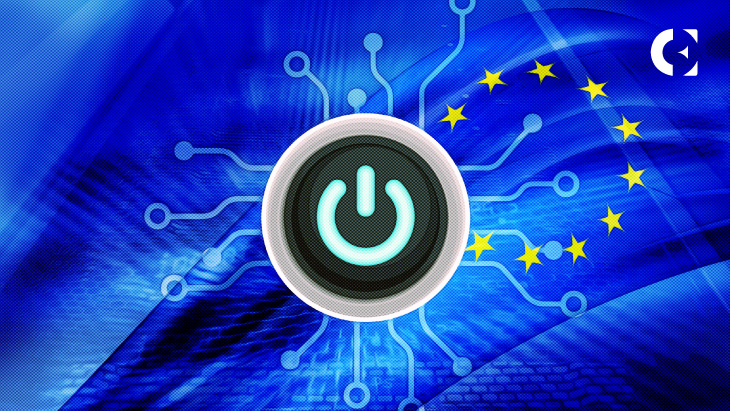- The EU introduced the Data Act to protect consumers from rogue artificial intelligence.
- The kill switch provision of the act is meant for safety in blockchain-based algorithms.
- However, the basic feature of blockchain technology is interrupted when the system is open to intermediaries.
The Data Act introduced by the European Union (EU) which is designed for protecting consumers from rogue artificial intelligence, had been found to be a threat to the crypto space.
The new project had been introduced for ensuring safety in blockchain-based algorithms with the help of a “kill switch” that would promote autonomous self-activating code or smart contracts.
However, the kill switch would inflict a centralized authority that interferes with the blockchain industry, and thereby deconstructs the basic ideology of blockchain technology. In addition, the kill switch could erode the immutability of the blockchain system and could read what had been recorded on the blockchain.
Such a feature of the kill switch is contradicting the uncompromising and unrevealing permanently locked nature of the blockchain system, which could affect the industry to a great extent.
Notably, the distinct feature of the blockchain industry that makes it trustworthy among the wider community is its secured transactions. But, once the new Data Act intrudes into the system, the closed system would become open and it would be accessible to third parties.
Marta Belcher, a cryptocurrency attorney commented that the kill switch provision should never be introduced to blockchain-based smart contracts:
The text of the ‘kill switch’ provision as it currently stands seems to misunderstand how smart contracts actually work; in its current form, it would require ‘that mechanism exists to terminate the continued execution of transactions and that the smart contract ‘includes internal functions which can reset or instruct the contract to stop or interrupt the operation
He added that by such innovation, the government is trying to create “backdoors” to create technologies that are less secure and easily vulnerable, undermining the key purpose of blockchain.
Disclaimer: The information presented in this article is for informational and educational purposes only. The article does not constitute financial advice or advice of any kind. Coin Edition is not responsible for any losses incurred as a result of the utilization of content, products, or services mentioned. Readers are advised to exercise caution before taking any action related to the company.







